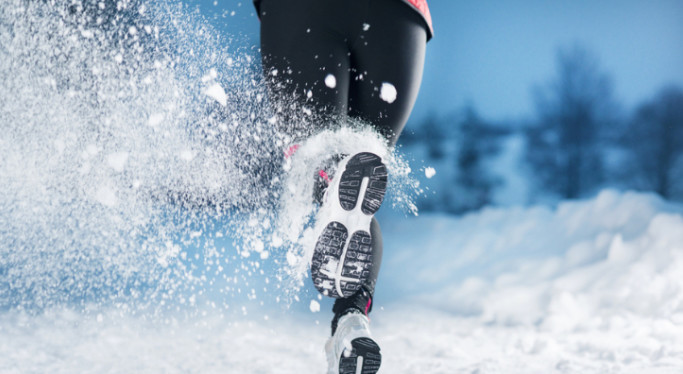
How Active Are You during the Winter?
Humans may not hibernate, but most certainly become much less active as the temperature drops. Unfortunately, even a slight change in your activity level can increase your risk of a variety of health issues, including sore, stiff muscles and joints. Although you may not be able to enjoy your favorite warm-weather activities during the winter, staying active will help you stay healthier and prevent aches and pains.
Why Activity Is So Important
Moving is good for every part of your body, from your legs to your heart and lungs. Any type of movement, whether it's completing a vigorous workout or walking your dog, improves blood circulation. Blood circulates oxygen throughout your body and provides important nutrients to muscles, tissues, and organs. Good circulation keeps your organs functioning optimally, speeds wound healing, and is essential for brain and heart health. Are your feet or hands always cold during the winter months? Even a brief exercise session will warm up those chilly fingers and toes.
Other benefits of moving include:
- Better Metabolism. A sluggish metabolism makes it harder to burn calories. Incorporating movement into your daily routine offers a simple way to jumpstart your metabolism and manage your weight.
- Reduced Risk of Chronic Diseases. Inactivity increases your risk of high cholesterol, high blood pressure, stroke, type 2 diabetes, osteoporosis, breast and colon cancer, depression, and anxiety, according to Medline Plus. Moving more, no matter the season, may help you avoid or lower your risk of these diseases.
- Stronger Immune System. Your immune system is better equipped to fight off winter colds and illnesses if you stay active during the winter. Improving your blood flow with exercise makes it easier for white blood cells to circulate throughout your body. These cells help your body fight germs that could make you sick.
- Less Inflammation. Exercise also reduces inflammation, which the National Institute of Environmental Health Sciences notes can be a factor in heart disease, asthma, diabetes, colon cancer, high blood pressure, inflammatory bowel disease, and other chronic diseases.
- Better Balance. You're more likely to slip and fall if your balance is poor due to weak bones and muscles. Strengthening your muscles and bones with exercise helps you improve your balance and avoid falls.
- Lower Osteoporosis Risk. Osteoporosis, a condition that weakens bones, can lead to painful fractures in older people. Fifty percent of women and about twenty-five percent of men may eventually break a bone due to this disease, according to the National Osteoporosis Foundation. Vigorous weight-bearing activity, like aerobics (high- or low-impact), tennis, walking, or dancing, strengthens bones and reduces your risk of breaking a bone.
- Less Pain. It's not a coincidence that joint and muscle pain tends to increase during the winter months. A sedentary lifestyle can lead to stiff, painful muscles and joints, but it's not the only reason you may feel more pain during the winter. On cold days, blood flow to your arms and legs decreases in an attempt to keep your core warm. Without a steady supply of blood to warm your muscles, they may soon become stiff and achy.
What's Keeping You from Staying Active?
Is lack of motivation the reason you rarely exercise during the winter? Exercise doesn't have to be a grueling chore. Any type of movement, whether it's dancing in your kitchen, bowling, cleaning your closet, or trying a few yoga moves, will help you stay healthier.
It's much more difficult to skip your daily walk or workout session when you exercise with someone else. After all, you won't want to disappoint your workout partner. Thanks to Zoom and other video calling software, you can work out together even if you live in different parts of the country.
If pain or stiffness makes staying active difficult, your chiropractor can help. Chiropractic treatments ease pain, keep your spine properly aligned, and loosen tight muscles and joints, making it much easier to exercise. Your chiropractor can also show you exercises that will help keep your muscles and joints loose, limber, and pain-free.
Could a visit to the chiropractor help you move more comfortably? Give us a call to schedule your appointment.
Sources:
National Institute of Environmental Sciences: Inflammation
https://www.niehs.nih.gov/health/topics/conditions/inflammation/index.cfm
National Osteoporosis Foundation: Osteoporosis Fast Facts
https://www.bonehealthandosteoporosis.org/wp-content/uploads/2015/12/Osteoporosis-Fast-Facts.pdf
Medline Plus: Health Risks of an Inactive Lifestyle
https://medlineplus.gov/healthrisksofaninactivelifestyle.html
Ortho Info: Exercise and Bone Health, 7/2020
https://orthoinfo.aaos.org/en/staying-healthy/exercise-and-bone-health/
